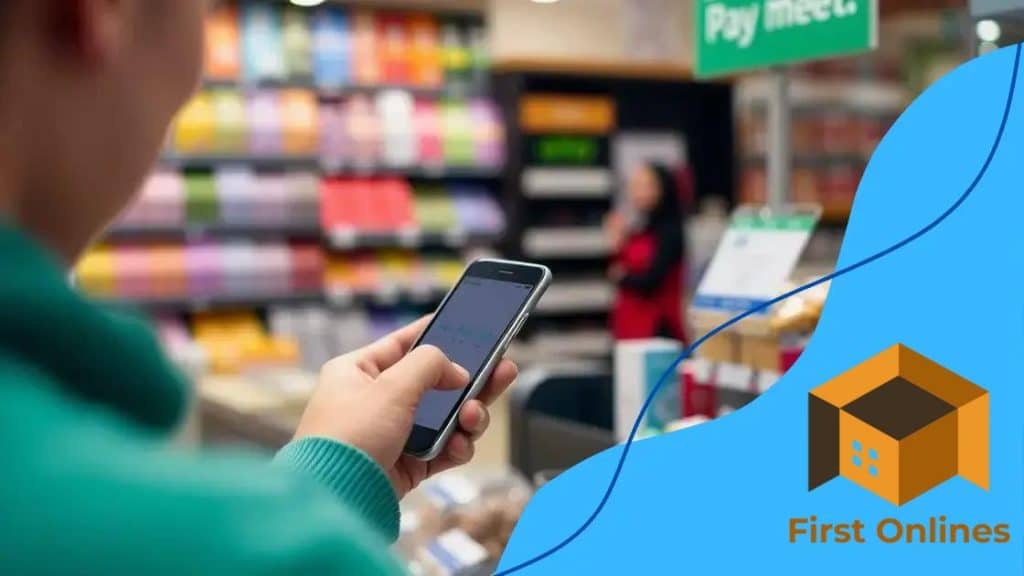The growing role of mobile payments in global finance

Anúncios
The growing role of mobile payments in global finance is transforming transactions by enhancing convenience, security, and efficiency, while also facilitating cross-border payments and digital currency integration.
The growing role of mobile payments in global finance is fascinating, isn’t it? As we shift towards a cashless society, understanding how these technologies transform our spending habits and financial interactions is crucial.
Anúncios
The rise of mobile payment platforms
The rise of mobile payment platforms has changed how we think about transactions. With a tap or a scan, people can pay for goods and services quickly and easily. This change has made shopping more convenient and accessible for everyone.
Key Mobile Payment Platforms
Several mobile payment platforms are dominating the market. Each has unique features that make them attractive to users. Some of the top platforms include:
- Apple Pay: Offers quick transactions and integrates seamlessly with Apple devices.
- Google Pay: Provides an easy way to send money and pay bills directly from your phone.
- PayPal: Known for online payments, PayPal also allows users to pay in-store using mobile devices.
These platforms are gaining popularity because they prioritize user experience and security. Many people value the ability to make payments without cash or physical cards.
Anúncios
Benefits of Mobile Payments
Mobile payments offer numerous benefits for both consumers and businesses. For users, convenience is key. With mobile payments, you can:
- Pay quickly without digging through your wallet.
- Track spending and manage finances through apps.
- Enjoy enhanced security features.
Businesses also benefit from mobile payments. They can reduce the costs associated with cash handling and offer customers faster checkout options. This improvement can lead to increased sales.
As mobile payment platforms continue to evolve, we can expect innovation and improvement in the payment experience. The integration of technologies like biometrics and contactless payment options further enhance security and ease of use.
Benefits of mobile payments for consumers

Mobile payments have become a popular choice for consumers. They provide a range of benefits that enhance the shopping experience. Many people enjoy the convenience of using their phones to make purchases at stores or online.
Convenience and Speed
One of the main advantages of mobile payments is their convenience. Shoppers can make transactions quickly without needing to carry cash or cards. This speed is especially helpful in busy environments like malls or coffee shops.
- Tap to pay at checkout.
- Save time by avoiding long lines.
- Access digital wallets for easy payments.
Additionally, consumers can easily track their spending using mobile payment apps. These apps often provide insights into spending habits and help manage budgets.
Enhanced Security
Security is another crucial factor. Mobile payments often use encryption and biometric authentication, like fingerprints or facial recognition. This makes transactions safer than traditional methods.
- Less risk of losing cash.
- Protection against unauthorized transactions.
- Real-time alerts for transactions.
Consumers feel more secure knowing that their financial information is protected. The growing concern about fraud has made enhanced security features a top priority for users.
Rewards and Offers
Many mobile payment platforms offer rewards and promotions for users. Shoppers can earn points or receive discounts when they use their mobile wallet. This incentive not only encourages the use of mobile payments but also saves money in the long run.
As mobile payment technology continues to advance, consumers can expect more innovative features that enhance their shopping experience. The future looks bright for mobile payments!
Challenges facing mobile payment adoption
While mobile payments are on the rise, there are several challenges facing their adoption. Many consumers and businesses still hesitate to embrace this technology fully. Understanding these hurdles is vital for further development and acceptance.
Security Concerns
One of the most significant challenges is the concern about security. Consumers worry about the safety of their financial information when using mobile payment apps. Instances of data breaches on various platforms have heightened these fears.
- Phishing scams targeting users.
- Concerns about data encryption.
- Lack of trust in new technologies.
To overcome these issues, companies must prioritize security measures and educate users about how their information is protected. Stronger authentication methods, like biometrics, can enhance users’ confidence.
Limited Acceptance
Another challenge is the limited acceptance of mobile payments at retail locations. Not all merchants accept mobile payments, which can frustrate consumers. This issue is particularly prevalent in small businesses.
- High costs for businesses to implement payment systems.
- Lack of awareness about the benefits.
- Concerns over transaction fees.
As more businesses recognize the advantages of mobile payments, we can expect increased acceptance. However, educating merchants about the long-term benefits is crucial.
Technological Barriers
Technological barriers also pose a challenge. Some users may lack access to smartphones or high-speed internet, making mobile payments inconvenient. Older generations, in particular, may feel overwhelmed by new technology.
Moreover, the rapid evolution of technology can leave some users behind, making it essential to provide adequate resources for all demographics. Workshops and tutorials can help bridge this gap and encourage adoption.
The future of mobile payments in finance

The future of mobile payments in finance looks promising. As technology evolves, we can expect even more integration into our daily lives. People are already using their smartphones to handle transactions, and this trend is only going to grow.
Integration with Other Technologies
Mobile payments are likely to integrate more with other technologies. For example, artificial intelligence may personalize shopping experiences. This integration helps users find products they want while ensuring safe payments.
- Smart assistants offering purchase recommendations.
- Faster checkouts with voice commands.
- Enhanced fraud detection using machine learning.
Combining AI with mobile payments enhances not just user experience but also security.
Expansion of Contactless Payments
Furthermore, the expansion of contactless payments will continue to rise. Users value quick and easy transactions. Therefore, more retailers are adopting systems that support these payments.
- More point-of-sale systems accepting mobile wallets.
- Expansion of NFC technology globally.
- Greater awareness of the benefits of contactless payments.
This trend is especially significant post-pandemic, as customers seek safe shopping experiences. Retailers will need to adapt quickly to remain competitive.
Digital Currencies and Blockchain
Additionally, the use of digital currencies could impact mobile payments. Cryptocurrencies and blockchain technology are gaining traction. They offer new payment methods that promise lower fees and faster transactions.
As consumers become more comfortable with cryptocurrencies, businesses may start accepting them. This shift can potentially reshape payment systems and methods widely used today.
Consumers can look forward to a more connected, seamless, and secure payment experience as mobile payment technology continues to evolve. The focus on convenience and safety will drive this change.
Cross-border mobile payment solutions
Cross-border mobile payment solutions are essential in today’s globalized economy. They enable consumers and businesses to conduct transactions across different countries without hassle. As more people travel and shop internationally, the demand for these services increases.
What Are Cross-Border Payments?
Cross-border payments refer to any transaction where money is transferred from one country to another. This includes payments for goods, services, or even remittances. With the rise of mobile payment platforms, these transactions are becoming faster and more efficient.
- Better exchange rates: Many mobile solutions offer competitive rates for currency conversion.
- Reduced fees: Traditional banks often charge high fees for international payments, whereas mobile solutions can be much cheaper.
- Instant transactions: Mobile payments usually process faster than bank transfers.
These benefits are appealing to users who want to save time and money when making cross-border payments.
Popular Cross-Border Payment Platforms
Several mobile payment platforms specialize in cross-border transactions. These include:
- TransferWise: Known for low fees and transparent pricing, it’s a popular choice for international transfers.
- PayPal: Offers an extensive network that allows users to send money to various countries quickly.
- Revolut: Provides excellent exchange rates and no hidden fees for international payments.
These platforms simplify the process for users and make sending money overseas easier than ever before.
The Future of Cross-Border Mobile Payments
The future looks bright for cross-border mobile payments. As technology continues to advance, we can expect more innovative solutions. Companies are working on improving security features and streamlining the payment process.
In addition, the growing acceptance of digital currencies could change how cross-border payments are made. This evolution will make international transactions even more accessible to everyone.
FAQ – Frequently Asked Questions about Mobile Payments
What are mobile payments?
Mobile payments are transactions made using a smartphone or tablet, allowing users to pay for goods and services electronically.
How secure are mobile payments?
Mobile payments use encryption and other security features, like biometrics, to ensure user information is secure.
What are the benefits of using mobile payments?
Benefits include convenience, speed, reduced transaction fees, and enhanced tracking of spending.
Can I use mobile payments for international transactions?
Yes, many mobile payment platforms support cross-border transactions, making it easier to pay for goods and services globally.





